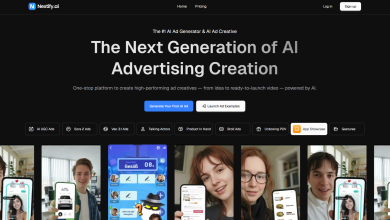
Customer expectations in retail are in a relentless state of flux, shaped by new technologies, global events, and shifting priorities. What delighted shoppers a few years ago might barely meet their needs today, let alone inspire loyalty.
A single moment or transaction no longer defines customer experience in retail. Instead, it’s the sum of every interaction, from the first click on an ad to the ongoing engagement, that transforms casual buyers into loyal brand advocates. For retailers, the imperative is clear: delivering seamless, memorable experiences and building a community of ‘raving fans’ who return not just for products, but for a deeper sense of connection and added value.
AI-powered targeting uses advanced algorithms and machine learning to analyse customer data and predict the most relevant audience for each campaign. It removes guesswork from marketing and unlocks hyper-personalisation at scale; this is core to building not just loyal customers, but a genuine community around the brand.
Intelligent marketing with AI-powered targeting
Artificial intelligence and machine learning have set a new standard for personalisation. Today’s customers expect retailers to remember their preferences and anticipate their needs, marking the arrival of genuine, data drive one-to-one engagement.
By leveraging sophisticated algorithms and machine learning, AI-powered targeting allows retailers to sift through mountains of customer data, uncovering insights that were previously out of reach. The technology eliminates guesswork, automatically identifying and segmenting customers based on nuanced behavioural patterns, preferences, and purchase history.
The result? Marketing messages that are highly personalised and precisely timed, resonating deeply with consumers who expect brands to really understand them.
Such advanced personalisation capabilities allow brands to move beyond historical behaviour. By leveraging AI and predictive analytics, retailers can segment customers according to likely future actions, risk of churn, or projected lifetime value. This marks a step change from reactive to truly proactive customer engagement, opening new opportunities for retailers who want to stand out in today’s fiercely competitive landscape.
Why customer experience (CX) matters
With rising costs and margins under pressure, retailers cannot afford churn, so short-term wins from offers rarely build the loyalty and advocacy needed for sustainable growth. Data-driven relationships now pay off directly in both retention and revenue.
Customer loyalty in retail is evolving at breakneck speed, and retailers must rethink their strategies to keep up. Today’s shoppers expect more, and they’re less forgiving when their expectations aren’t met. According to research, 84% of consumers say they won’t return to a brand after a poor return experience. Since you can’t build a sustainable retail business on one-time shoppers, customer loyalty is more precious and fragile than ever.
And with endless options just a click away, consumers can “shop around” until they find an experience that truly resonates. That’s why building meaningful, data-driven relationships is far more powerful than relying on fleeting price promotions or blanket discounts.
An added piece of this relationship is that research also shows 71% of consumers will recommend a product or service because of a positive experience they received. Putting customer experience at the centre is, therefore, a proven growth strategy.
The delicate line between CX success and failure
Consider the case of a loyal customer who has shopped at the same grocery store for years and consistently purchases only lactose-free and gluten-free products. Wanting to show appreciation on the customers birthday, the store sends them a cake filled with whipped cream and gluten layers. While the gesture was well-intentioned, it failed to take their purchase history into account, resulting in a gift they cannot enjoy.
This highlights why AI must have access to complete and accurate data but must be guided by true understanding of customer context – a role that only a human perspective can fulfil.
The limits and risks of AI
While AI has transformed retail by automating tasks, making personalisation scalable, and uncovering valuable insights, it’s crucial to remember that efficiency does not equal empathy. Technology excels at analysing data and predicting patterns, but it still can’t replace a human’s understanding, intuition, or ability to connect on an emotional level. There are moments in the customer journey, especially when things go wrong, where a real conversation, sincere apology, or creative problem-solving can make all the difference.
That’s why backstopping AI with engaged, knowledgeable humans remain essential. Customer service teams, escalation specialists, and in-store staff play critical roles that technology alone can’t fulfil. Retail success will always require a blend of data-smart technology and genuine, relationship-driven service.
Operationally, this means retailers should approach AI adoption with healthy caution. Relying too heavily on automation risks alienating customers and missing the subtle cues only humans can interpret. Every tech-dependent experience should have a human fallback, ensuring that whenever AI reaches its limit, a real person is ready to step in and deliver the care, empathy, and flexibility that build long-term loyalty.
Future of AI in retail customer experience
To thrive in 2025 and beyond, retail brands must be willing to reinvent their approach to customer loyalty from the ground up. This means moving beyond generic, one-size-fits-all communications and embracing data-driven engagement at every step of the customer journey.
Today, every touchpoint, whether it’s a welcome email, a milestone reward, or a thoughtful post-purchase nudge, plays a critical role in building loyalty. The brands that succeed will be those that ensure every interaction is personalised, relevant and meaningful.
While there’s much debate about whether AI could replace retail staff, our experience shows that the most effective customer experiences occur when AI and human expertise work together. As AI continues to take on greater complexity, brands must remember that long-term loyalty and true success depend on using technology to forge closer connections with customers, not allowing it to become a barrier that creates distance.
In the race for customer loyalty, it’s this careful blend of intelligent systems and human insight that will set tomorrow’s retail winners apart.





